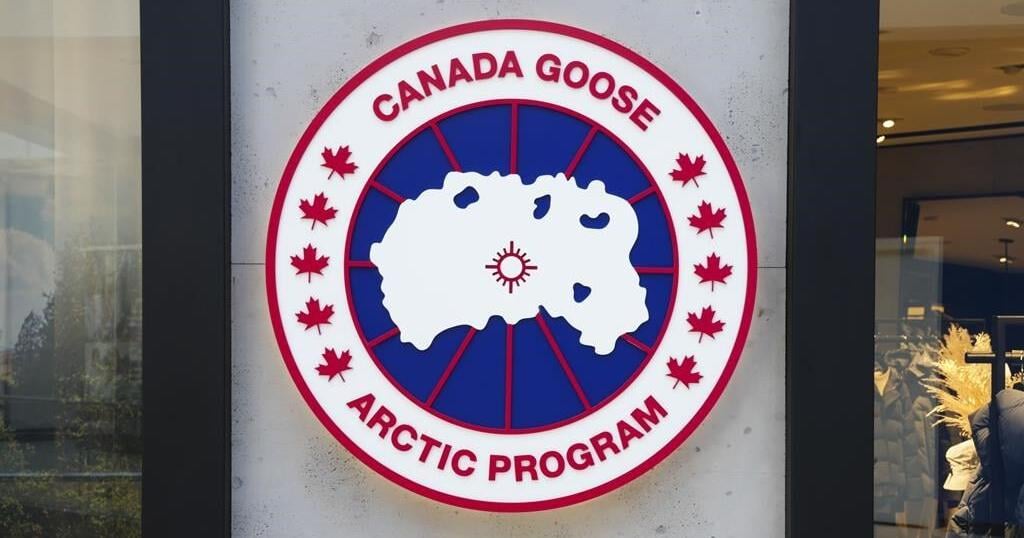Area has lost 10,000 positions since February
Business
Sudbury loses another 1,400 jobs – The Sudbury Star

(Getty Images)
Sudbury’s COVID-infected economy continues to shed jobs.
Statistics Canada said on Friday that the Sudbury area lost 1,400 jobs June and its unemployment rate moved up to 9.4 per cent, compared to 8.4 per cent in May.
The agency said Sudbury recorded 76,000 jobs in May, but that fell to 74,600 jobs last month.
In addition, the area’s labour force shrank: 83,000 people were either employed or were looking for work in May. That number fell to 82,200 in June.
Greater Sudbury lost 3,400 jobs in May and more than 10,000 since February, Statistics Canada figures also show.
And while the city’s biggest employers, such as Vale, Glencore and Health Sciences North, have continued to operate, the services sector has been hit hard after the economy was locked down in an effort to slow the spread of COVID-19.
The province has begun to lift some of those restrictions, but the job market — at least in Sudbury — has yet to bounce back.
Not so nationally: Canada added a record 952,900 jobs in June on a service sector surge as restaurants, stores and businesses reopened from coronavirus closures, although its jobless rate was slightly worse than expected at 12.3 per cent.
Statistics Canada said on Friday that the country has regained some 1.2 million of the 3 million jobs lost from February to April as non-essential businesses across the country were shut to curb the coronavirus outbreak.
Analysts in a Reuters poll had predicted a gain of 700,000 jobs and an unemployment rate of 12 per cent.
“It’s a pleasant high-side surprise. It’s a big step in the right direction,” Doug Porter, chief economist at BMO Capital Markets, said of the jobs gain.
Still, just over a quarter of the potential labor force was underutilized in June, notably higher than prepandemic levels, StatsCan said.
The Canadian dollar was nearly unchanged at 1.3589 per U.S. dollar, or 73.59 U.S. cents.
The U.S. last week also posted record job gains in June on its reopenings but a COVID-19 resurgence could lead to a labor market setback in July.
Employment in Canada’s goods-producing sector rose by 158,600, while the services sector gained a record 794,400 positions, split fairly evenly between full-time and part-time.
Economists did not expect the record job gain to prompt action from the Bank of Canada, which slashed its key interest rate three times in March to 0.25 per cent.
“They will still be cautious about the aftermath of the initial V stage (of the recovery). This is reflecting a quick spurt as economies reopen,” Derek Holt, head of Capital Markets Economics at Scotiabank, said.
The June totals did not capture people who temporarily lost work due to the coronavirus crisis and want to work, but are not currently looking for employment, Statscan said. Had they been counted, the unemployment rate would have been 16.3 per cent.
Despite the good news, economist Jim Stanford said there remains a historic crisis in the job market with high unemployment and hundreds of thousands who have left the labour force altogether.
Also, gains nationally were not shared equally among groups, with women, youth and low-wage workers still slower to rebound, which Stanford said could be problematic if those jobs don’t ever come back.
“I worry about a coming second round of layoffs motivated not by health restrictions, but by companies deciding their businesses are going to be permanently smaller. So that would be qualitatively different and in a way worse,” said Stanford, director of the Centre for Future Work in Vancouver.
“We aren’t remotely out of the woods yet, but this was a really encouraging step forward.”
Some three million jobs were lost over March and April due to the pandemic, and 2.5 million more had their hours and earnings slashed. By last month, some 3.1 million were affected by the pandemic, including 1.4 million who weren’t at work due to COVID-19.
Brendon Bernard, an economist at Indeed Canada, said recapturing jobs at the same pace in the coming months will be tougher.
“A lot of areas of the economy still aren’t running at full capacity,” Bernard said. “So while doors may be open and customers might be coming in, business hasn’t come back to normal.”
The overall job losses were unprecedented in speed and depth compared with previous recessions, Statistics Canada said, and the rebound to date sharper than previous downturns.
Ottawa’s response has been equally unprecedented: a deficit of at least $343.2 billion this fiscal year as the Trudeau Liberals dole out some $230 billion in emergency aid.
In June, 28.3 per cent of Canadians aged 15 to 69 reported receiving some form of federal aid since mid-March, Statistics Canada said. Meanwhile, the proportion of households reporting difficulty paying the bills dropped to 20.1 per cent in June from 22.5 per cent in May.
“Without the federal government being there to support Canadian workers, Canadian businesses and the Canadian provinces and territories, we would be in a bigger mess in this country right now,” Hassan Yussuff, president of the Canadian Labour Congress said in an interview this week.
The Bank of Canada and federal government believe the worst of the economic pain from the pandemic is behind the country, but Canada will face high unemployment and low growth until 2021.
— with files from Canadian Press
sud.editorial@sunmedia.ca
Twitter: @SudburyStar
Business
TC Energy cuts cost estimate for Southeast Gateway pipeline project in Mexico

CALGARY – TC Energy Corp. has lowered the estimated cost of its Southeast Gateway pipeline project in Mexico.
It says it now expects the project to cost between US$3.9 billion and US$4.1 billion compared with its original estimate of US$4.5 billion.
The change came as the company reported a third-quarter profit attributable to common shareholders of C$1.46 billion or $1.40 per share compared with a loss of C$197 million or 19 cents per share in the same quarter last year.
Revenue for the quarter ended Sept. 30 totalled C$4.08 billion, up from C$3.94 billion in the third quarter of 2023.
TC Energy says its comparable earnings for its latest quarter amounted to C$1.03 per share compared with C$1.00 per share a year earlier.
The average analyst estimate had been for a profit of 95 cents per share, according to LSEG Data & Analytics.
This report by The Canadian Press was first published Nov. 7, 2024.
Companies in this story: (TSX:TRP)
The Canadian Press. All rights reserved.
Business
BCE reports Q3 loss on asset impairment charge, cuts revenue guidance

BCE Inc. reported a loss in its latest quarter as it recorded $2.11 billion in asset impairment charges, mainly related to Bell Media’s TV and radio properties.
The company says its net loss attributable to common shareholders amounted to $1.24 billion or $1.36 per share for the quarter ended Sept. 30 compared with a profit of $640 million or 70 cents per share a year earlier.
On an adjusted basis, BCE says it earned 75 cents per share in its latest quarter compared with an adjusted profit of 81 cents per share in the same quarter last year.
“Bell’s results for the third quarter demonstrate that we are disciplined in our pursuit of profitable growth in an intensely competitive environment,” BCE chief executive Mirko Bibic said in a statement.
“Our focus this quarter, and throughout 2024, has been to attract higher-margin subscribers and reduce costs to help offset short-term revenue impacts from sustained competitive pricing pressures, slow economic growth and a media advertising market that is in transition.”
Operating revenue for the quarter totalled $5.97 billion, down from $6.08 billion in its third quarter of 2023.
BCE also said it now expects its revenue for 2024 to fall about 1.5 per cent compared with earlier guidance for an increase of zero to four per cent.
The company says the change comes as it faces lower-than-anticipated wireless product revenue and sustained pressure on wireless prices.
BCE added 33,111 net postpaid mobile phone subscribers, down 76.8 per cent from the same period last year, which was the company’s second-best performance on the metric since 2010.
It says the drop was driven by higher customer churn — a measure of subscribers who cancelled their service — amid greater competitive activity and promotional offer intensity. BCE’s monthly churn rate for the category was 1.28 per cent, up from 1.1 per cent during its previous third quarter.
The company also saw 11.6 per cent fewer gross subscriber activations “due to more targeted promotional offers and mobile device discounting compared to last year.”
Bell’s wireless mobile phone average revenue per user was $58.26, down 3.4 per cent from $60.28 in the third quarter of the prior year.
This report by The Canadian Press was first published Nov. 7, 2024.
Companies in this story: (TSX:BCE)
The Canadian Press. All rights reserved.
Business
Canada Goose reports Q2 revenue down from year ago, trims full-year guidance

TORONTO – Canada Goose Holdings Inc. trimmed its financial guidance as it reported its second-quarter revenue fell compared with a year ago.
The luxury clothing company says revenue for the quarter ended Sept. 29 totalled $267.8 million, down from $281.1 million in the same quarter last year.
Net income attributable to shareholders amounted to $5.4 million or six cents per diluted share, up from $3.9 million or four cents per diluted share a year earlier.
On an adjusted basis, Canada Goose says it earned five cents per diluted share in its latest quarter compared with an adjusted profit of 16 cents per diluted share a year earlier.
In its outlook, Canada Goose says it now expects total revenue for its full financial year to show a low-single-digit percentage decrease to low-single-digit percentage increase compared with earlier guidance for a low-single-digit increase.
It also says it now expects its adjusted net income per diluted share to show a mid-single-digit percentage increase compared with earlier guidance for a percentage increase in the mid-teens.
This report by The Canadian Press was first published Nov. 7, 2024.
Companies in this story: (TSX:GOOS)
The Canadian Press. All rights reserved.
-

 News15 hours ago
News15 hours agoA tiny grain of nuclear fuel is pulled from ruined Japanese nuclear plant, in a step toward cleanup
-

 News16 hours ago
News16 hours agoCanadanewsmedia news November 07, 2024: Canada’s health-care spending to reach $372 billion in 2024
-

 Sports15 hours ago
Sports15 hours agoDeMar DeRozan scores 27 points to lead the Kings past the Raptors 122-107
-

 Sports15 hours ago
Sports15 hours agoPWHL unveils game jerseys with new team names, logos
-

 News16 hours ago
News16 hours agoWho ruined Hobo Hot Springs? Ministry investigates as mystery roils Harrison, B.C.
-

 News10 hours ago
News10 hours agoAlberta forestry minister says wolverine, lynx trapping limits lifted to gather data
-

 News10 hours ago
News10 hours agoCourt order will compel release of records in Dye & Durham competition probe
-

 Sports16 hours ago
Sports16 hours agoDabrowski, Routliffe remain unbeaten at WTA Finals, reach semifinals in Riyadh






















